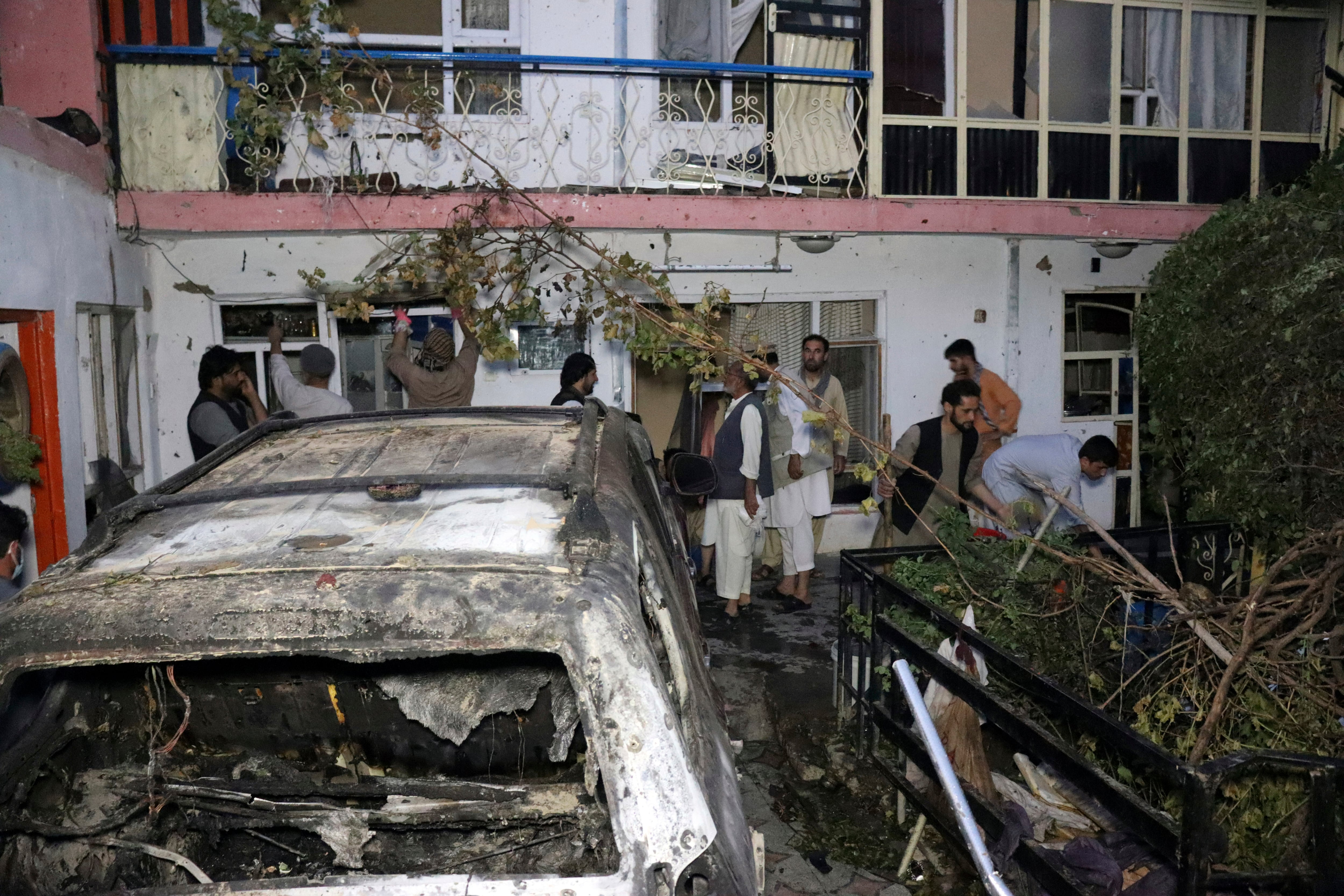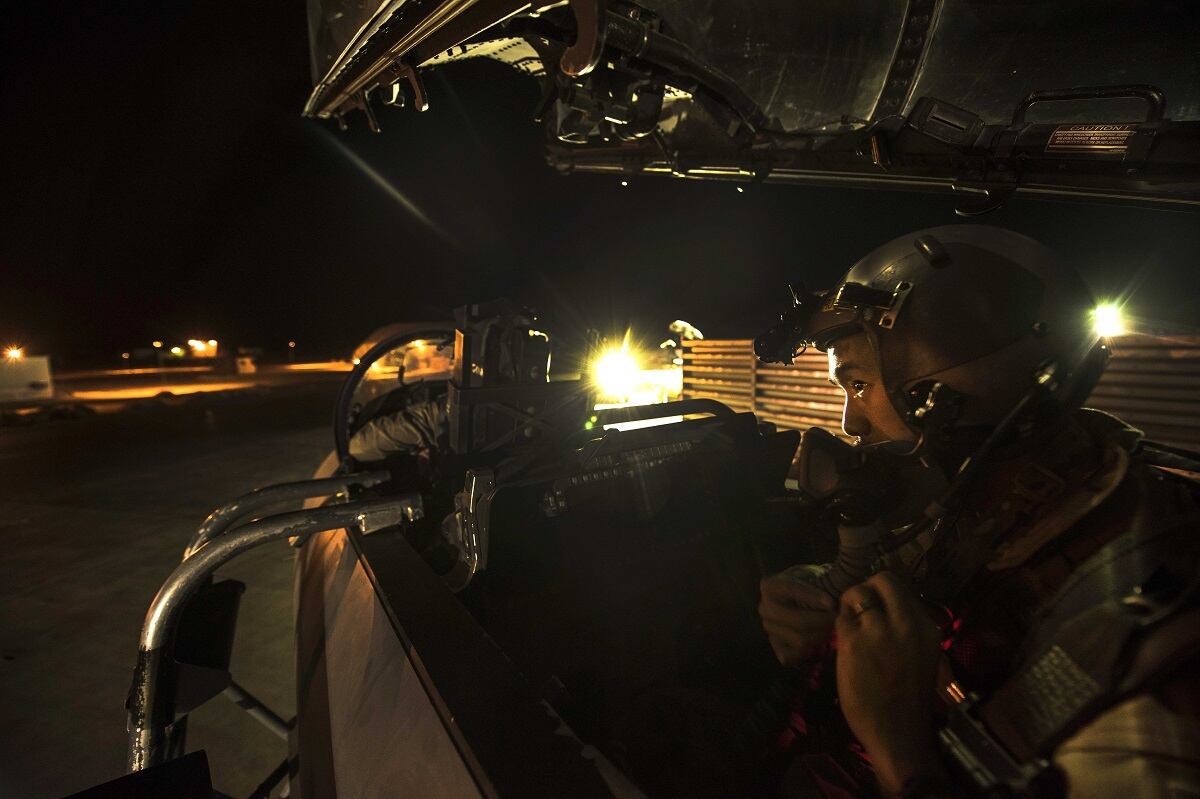When U.S. Central Command authorizes strikes against groups like ISIS-K or al Qaida in Afghanistan, they won’t be negotiating with the Taliban about where and when they can drop bombs.
While the U.S. generally negotiates agreements with countries where it conducts strikes, the Pentagon considers Afghanistan essentially a free space, following the collapse of its elected government in August.
“We retain all necessary authorities to execute over-the-horizon counterterrorism operations, and we remain confident in these capabilities moving forward,” Pentagon spokesman John Kirby told Military Times on Friday. “Without speaking to specific rules of engagement surrounding air strikes, there is currently no requirement to clear airspace with the Taliban, and we do not expect that any future over-the-horizon counterterrorism strikes would hinge on such a clearance.”
Force protection measures will be built into any strikes, he added, should the Taliban choose to try to shoot down an unmanned aerial vehicle or other aircraft.
Unfettered access to the airspace over Afghanistan will be key in the long-distance missions the Defense Department has promised it will continue, absent troops on the ground.
Kirby would not say whether the “authorities” to strike there were approved by the Taliban or simply self-bestowed, but for all intents and purposes, the U.S. government has not been communicating or cooperating with the reinstated Taliban regime as a legitimate government.
Any liaising has been limited to the mission to continue evacuating American citizens and Afghan allies who wish to resettle in the U.S.
RELATED

As the U.S. gets its bearings in terms of gathering intelligence without eyes and ears on the ground in Afghanistan, the DoD is reviewing what might be considered one of the first of its post-Afghanistan War over-the-horizon strikes: the Aug. 29 Hellfire missile that targeted ISIS bombmakers, but erroneously killed 10 civilians.
CENTCOM boss Marine Gen. Frank McKenzie told reporters on Sept. 17 that the strike was not representative of future operations, as it was done in the face of an imminent threat against U.S. troops outside the Kabul airport.
“We will have a lot more opportunity, probably, than we had under this extreme time pressure to take a look at the target ... with multiple platforms, to have an opportunity to develop extended pattern of life,” he said. “None of these things were available to us, given the urgent and pressing nature of the imminent threat to our forces.”
The Air Force inspector general is currenting reviewing the investigation into the strike, to see whether any aspect of the process needs changing, as well as to recommend discipline for any of the authorities involved.
Meanwhile, the DoD inspector general announced Thursday that it would review the strike independently, to assure all policies and procedures were followed.
Meghann Myers is the Pentagon bureau chief at Military Times. She covers operations, policy, personnel, leadership and other issues affecting service members.





